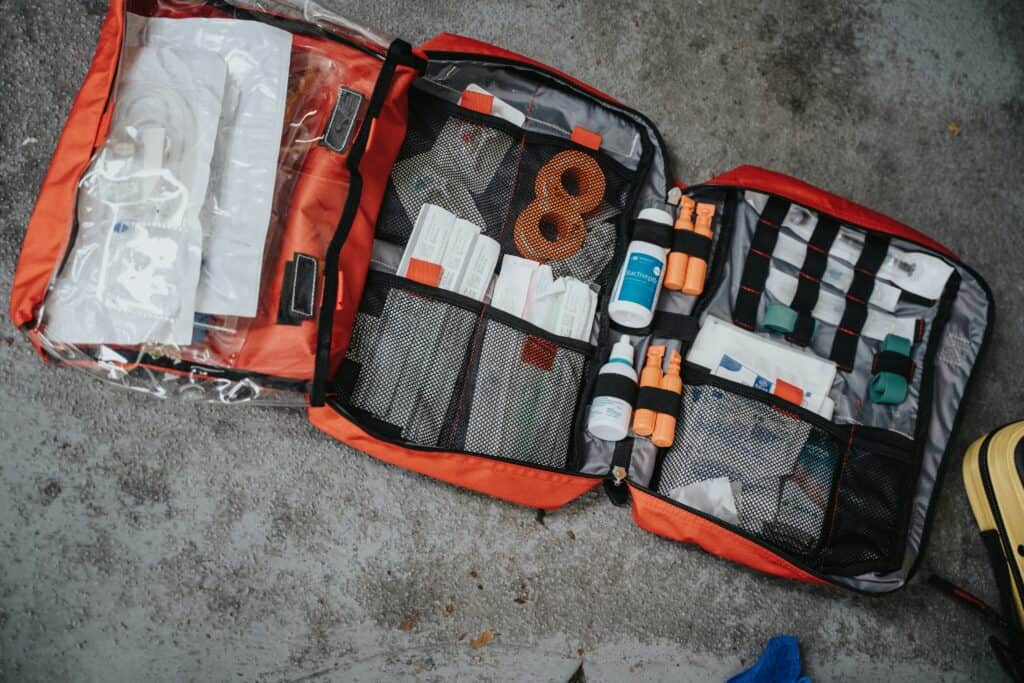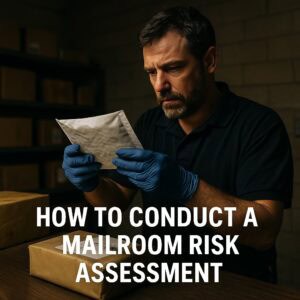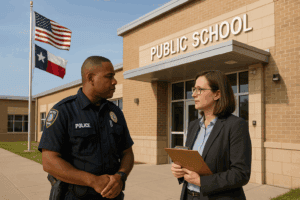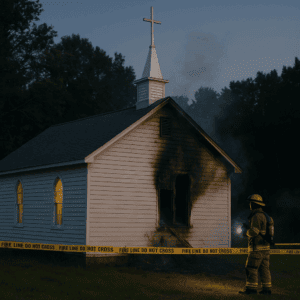De-escalation is a crucial skill in maintaining a safe and respectful environment in schools and churches.
These spaces often bring together diverse groups of individuals, which can lead to emotionally charged situations.
Effective de-escalation can prevent conflicts from escalating into harm, ensuring the safety and well-being of everyone involved.
Why De-Escalation Matters
In schools and churches, individuals may experience heightened emotions due to stress, trauma, or crisis. De-escalation helps:
- Prevent physical altercations or property damage.
- Create an atmosphere of trust and understanding.
- Maintain the integrity of the environment for learning or worship.
- Reduce the need for law enforcement intervention, especially in non-violent situations.
Understanding the Basics of De-Escalation
Key Concepts
- Stay Calm: Your demeanor sets the tone. Remaining calm can defuse tension.
- Active Listening: Show genuine interest in the individual’s concerns. Use verbal cues like, “I hear you” or “Tell me more.”
- Maintain Respect: Avoid judgmental language or dismissive gestures.
When to Use De-Escalation
- During conflicts between students or attendees.
- When someone appears distressed or agitated.
- In situations where physical intervention is unnecessary and inappropriate.
When De-Escalation May Not Be Appropriate
- In cases of imminent physical harm.
- When dealing with an armed individual or active shooter.
- If the situation requires law enforcement intervention.
Practical De-Escalation Strategies
Verbal Techniques
- Use Neutral Language: Avoid phrases like “Calm down” or “Why are you upset?” Instead, say, “How can I help you right now?”
- Acknowledge Feelings: Validate emotions without agreeing with harmful behavior. For example, “I understand you’re upset. Let’s talk about it.”
- Set Boundaries: Clearly and respectfully outline acceptable behavior: “We need to speak calmly to solve this.”.
Non-Verbal Techniques
- Maintain Personal Space: Stand at an angle and avoid direct eye contact if it feels confrontational.
- Control Your Body Language: Keep movements slow and deliberate. Avoid pointing or crossing arms.
- Use a Calm Tone: Speak slowly and softly to convey safety and control.
Tailored Approaches for Schools and Churches
For Schools
- Build Trust: Students respond better when they feel respected. Engage in consistent, positive interactions.
- Engage with Empathy: Understand external factors like academic stress or bullying.
- Include Staff Training: Equip teachers and school resource officers with de-escalation training.
For Churches
- Foster a Welcoming Environment: Emphasize community and understanding in sermons and events.
- Train Volunteer Teams: Many churches rely on volunteers for security and support. Provide them with specific de-escalation skills.
- Incorporate Conflict Resolution in Ministries: Encourage dialogue and understanding during disputes within attendees.
Conclusion
De-escalation is an invaluable tool for promoting safety in schools and churches. By combining verbal and non-verbal techniques with empathy and respect, staff and volunteers can address conflicts effectively.
How We Can Help
At Risk Strategy Group, we provide tailored training programs, physical security audits, and emergency operations planning to enhance safety in schools and churches. Contact us to learn more about equipping your teams with essential de-escalation techniques.








